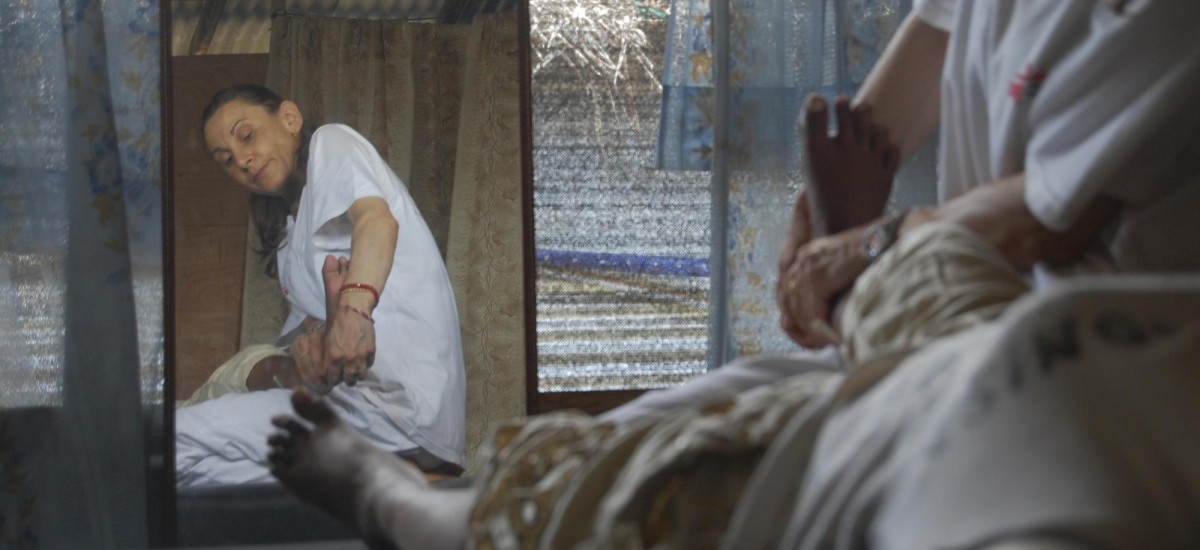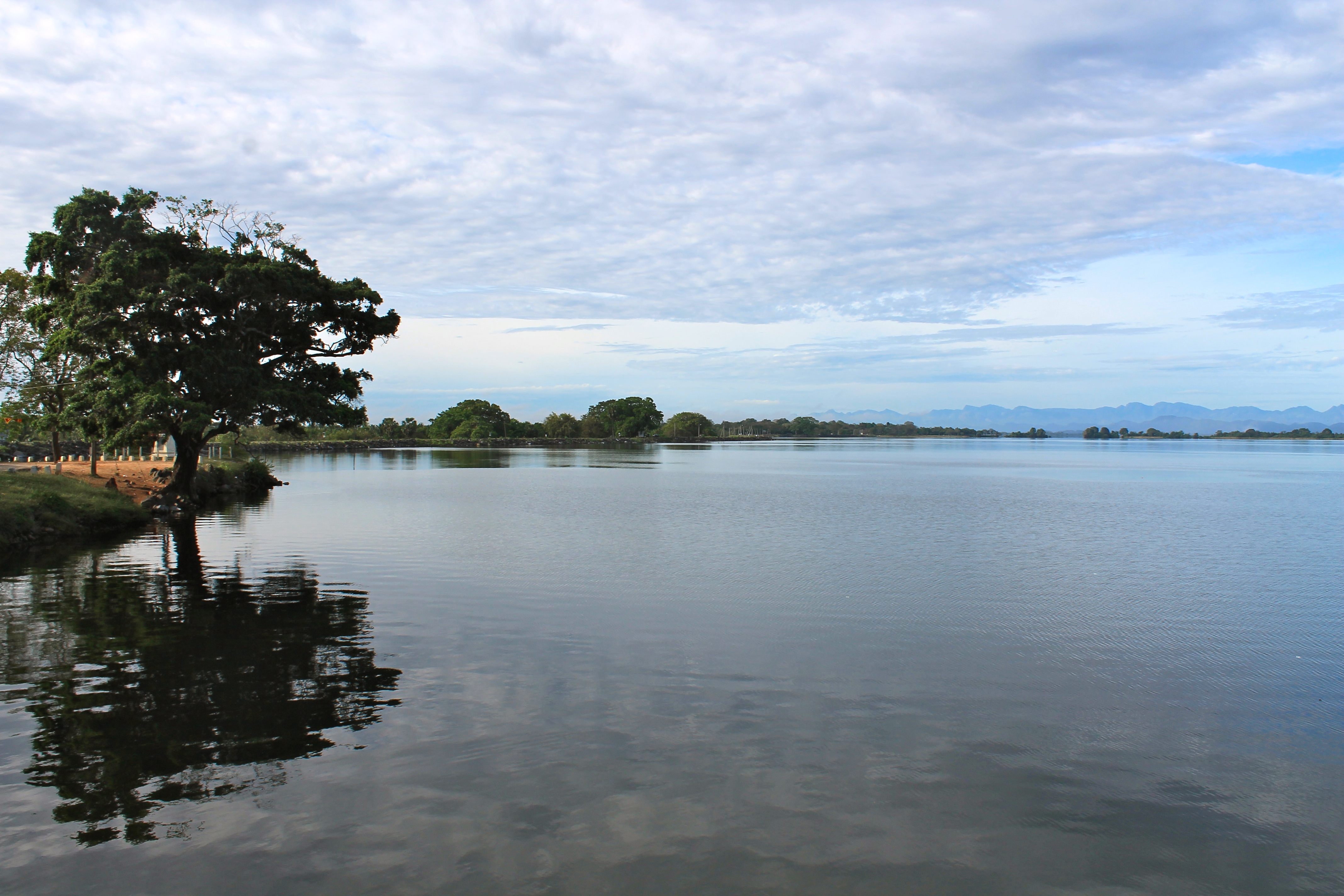Photo courtesy MSF
Like many countries, Sri Lanka is a nation struggling with a lot of problems.
The prevailing negative trends on the island are well-documented and irrefutable. People talk about national reconciliation, but one doesn’t see much of it. People talk about human rights, but one doesn’t see those being protected either. Perhaps the most unforgettable aspect of daily life, what I will never forget, is the climate of fear that permeates the country.
I remember when I first started working on Sri Lanka. It was shortly after the war ended. I remember being told that Sri Lanka is not a post-conflict country; rather, it’s post-war because the conflict is still ongoing. I remember always getting corrected during the interviews I was conducting. I know that’s right; I understand that Sri Lanka is a post-war country.
But now, years later, I also know that there’s a war still raging in Sri Lanka. It’s not a new fight and it’s not a secret.
It’s a war for dignity.
And the stakes couldn’t be higher.
Since 2009 Sri Lanka has received extensive international attention for the way the war ended and for its poor human rights and governance record. I still find it somewhat incredible that the United States (US) has spearheaded three UN Human Rights Council (HRC) resolutions in as many years. The most recent resolution is definitely the strongest of the three. Nonetheless, the first two resolutions just didn’t work and I remain unconvinced that this third resolution is going to lead to positive change either.
This is a complex and difficult situation. While it’s reasonable to assume that absent any international pressure, the situation in Sri Lanka would be worse, there are real limits to what can be accomplished through resolutions. Besides, resolutions can’t be passed at the Council forever.
The US or other countries could attempt to exert pressure bilaterally, but Washington has shown little interest in doing that.
Moreover, in the final analysis the change that really matters will have to come through domestic pressure; it’ll have to be homegrown.
When I’m in places like Jaffna or Vavuniya or Kilinochchi, I’m reminded of how distant and irrelevant places like Geneva can seem. The Northern Province is literally teeming with military personnel and that’s not something that should be expected to change in the near-term. This causes all sorts of problems that I won’t delve into here. Of course, the regime knows about these problems, but they just don’t care.
Furthermore, the regime’s narrative about reconciliation, reconstruction and economic growth just doesn’t hold water. They have lost all credibility with the international community and my sense is that advocacy efforts by the Sri Lankan government – in places like Geneva – aren’t even taken seriously anymore.
Since the end of war the regime’s rhetoric has resolved around lies, distortions, half-truths and propaganda. One might understand how they could get away with that for a couple years, but it’s been five years since the war ended. They need to make more of an effort to actually help people.
Returning to Sri Lanka’s war for dignity, I don’t think this is something that’ll be resolved soon. The United People’s Freedom Alliance (UPFA) is bad, but there are times I wonder whether the United National Party (UNP) would be any better. Just based on the way the UNP has behaved in opposition over the past few years, it’s seems clear that those people aren’t fit to run the country either. Once you start thinking along those lines, things get a bit hopeless in a hurry.
The Tamil National Alliance (TNA) has their own issues to sort out, but – of course – TNA’s not going to be chosen to run the country. They’ll need to build an alliance with one of the big Sinhala parties – both of which are wholly inadequate at the moment.
So what can we expect?
It looks like the war for dignity will burn on. It looks like – five years on – things might get even worse before they get better. This is disappointing and depressing, but it’s important to make realistic assessments about the current state of affairs.
I read frequently and like to memorize quotations.
Even though he’s not one of my favorite world leaders, for the past several months, I’ve been reading and reflecting upon the following statement by Theodore Roosevelt:
It is not the critic who counts; not the man who points out how the strong man stumbles, or where the doer of deeds could have done them better. The credit belongs to the man who is actually in the arena, whose face is marred by dust and sweat and blood; who strives valiantly; who errs, who comes short again and again, because there is no effort without error and shortcoming; but who does actually strive to do the deeds; who knows great enthusiasms, the great devotions; who spends himself in a worthy cause; who at the best knows in the end the triumph of high achievement, and who at the worst, if he fails, at least fails while daring greatly, so that his place shall never be with those cold and timid souls who neither know victory nor defeat.
On the human rights and advocacy front, one always hears about people writing reports or publishing opinion pieces or giving interviews or lobbying in Geneva. Brave, dedicated people are speaking out – which is, to say the least, commendable.There’s no question that all that stuff is very important; it’s an essential element of fomenting change.
On the other hand, I’ve recently found myself taking a closer look at life inside the arena. And so I’ve been thinking of other people – the ones who don’t get enough credit for what they do.They are students, doctors, lawyers, activists, teachers and researchers. They are colleagues, acquaintances and friends.
They are the ones who are doing all the other (and sometimes harder) work that makes a lot of the reports and interviews and advocacy even possible. These are people whose faces are “marred by dust and sweat and blood,” and yet they have that irrepressible fire that drives them.
Many have experienced incredible pain and suffering and things so appalling that it’s difficult to put it into words. In spite of all that, they know that there is hope and there can be happiness. These people aren’t sitting around feeling sorry for themselves. For them it is clear that – as long as they’re breathing – they’ll do everything possible to make sure that the Sri Lanka of today doesn’t become the Sri Lanka of tomorrow.
The truth of the matter is that some of the most impressive people “in the arena” are the one’s nobody’s ever heard of. They’re operating “under the radar,” avoiding the limelight. Many of them don’t even realize how inspirational they are.
Of course, the names of these individuals won’t appear in the newspapers and they’re not going to be writing op-eds for the Daily Mirror or Groundviews. They’re Sri Lanka’s quiet heroes.
And they deserve to be recognised.
###
This article is part of a larger collection of articles and content commemorating five years after the end of war in Sri Lanka. An introduction to this special edition by the Editor of Groundviews can be read here. This, and all other articles in the special edition, is published under a Creative Commons license that allows for republication with attribution.


